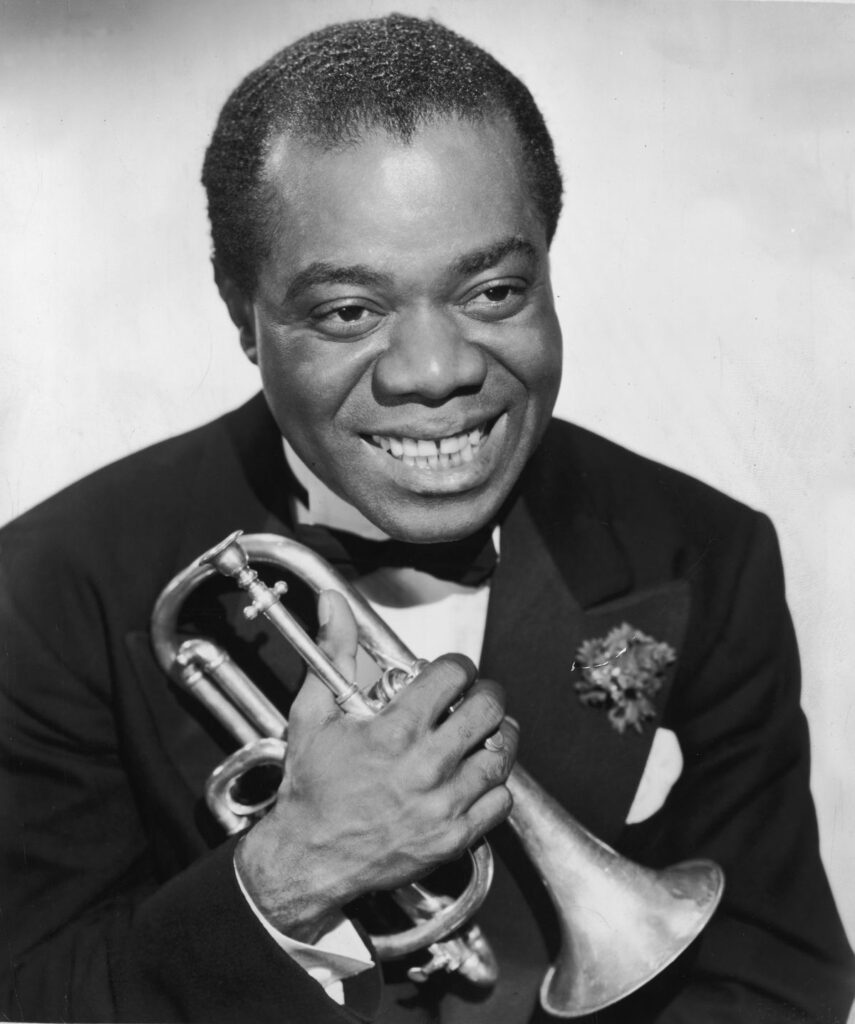Louis Armstrong, fondly known as “Satchmo” or “Pops,” was a pioneering figure in the world of jazz music whose influence still reverberates through the rhythms of modern music. Born on August 4, 1901, in New Orleans, Louisiana, Armstrong’s life journey would see him rise from poverty to become one of the most celebrated musicians of the 20th century.
Growing up in the vibrant streets of New Orleans, Armstrong was surrounded by the rich musical tapestry of the city. His early years were marked by hardship, with his father abandoning the family and his mother struggling to make ends meet. At the tender age of seven, he found solace in music, taking up the cornet and later the trumpet, which would become his lifelong companions.
Armstrong’s talent was undeniable, and he quickly made a name for himself on the local music scene. He honed his skills in the city’s thriving jazz clubs and street parades, soaking in the sounds of ragtime, blues, and spirituals that would shape his distinctive style.
In his late teens, Armstrong’s musical journey took him beyond the borders of New Orleans. He joined the legendary King Oliver’s Creole Jazz Band in Chicago, where he gained valuable experience and exposure to a wider audience. It was during this time that Armstrong’s innovative approach to jazz began to emerge, characterized by his virtuosic improvisation and emotive playing.
Throughout the 1920s and ’30s, Armstrong’s star continued to rise. He embarked on a successful solo career, recording hit after hit that showcased his unparalleled talent as a musician and vocalist. His groundbreaking recordings, such as “West End Blues” and “Potato Head Blues,” solidified his reputation as a trailblazer in the jazz world.
But Armstrong’s influence extended far beyond his musical prowess. As one of the first African-American musicians to achieve widespread fame, he broke down racial barriers and paved the way for future generations of black artists. His charismatic personality and infectious smile endeared him to audiences around the world, earning him the nickname “Ambassador Satch” for his role as a cultural ambassador of jazz.
In addition to his musical achievements, Armstrong was also a passionate advocate for civil rights. He used his platform to speak out against segregation and injustice, becoming a vocal supporter of the civil rights movement.
Despite facing discrimination and adversity throughout his life, Armstrong remained undeterred in his pursuit of excellence. His legacy endures not only through his timeless recordings but also through the countless musicians he inspired to push the boundaries of jazz.
Louis Armstrong passed away on July 6, 1971, but his music lives on as a testament to the power of creativity, resilience, and the universal language of jazz. From the streets of New Orleans to concert halls around the world, his trumpet continues to echo through the annals of music history, ensuring that the legend of Louis Armstrong will never fade away.


No responses yet